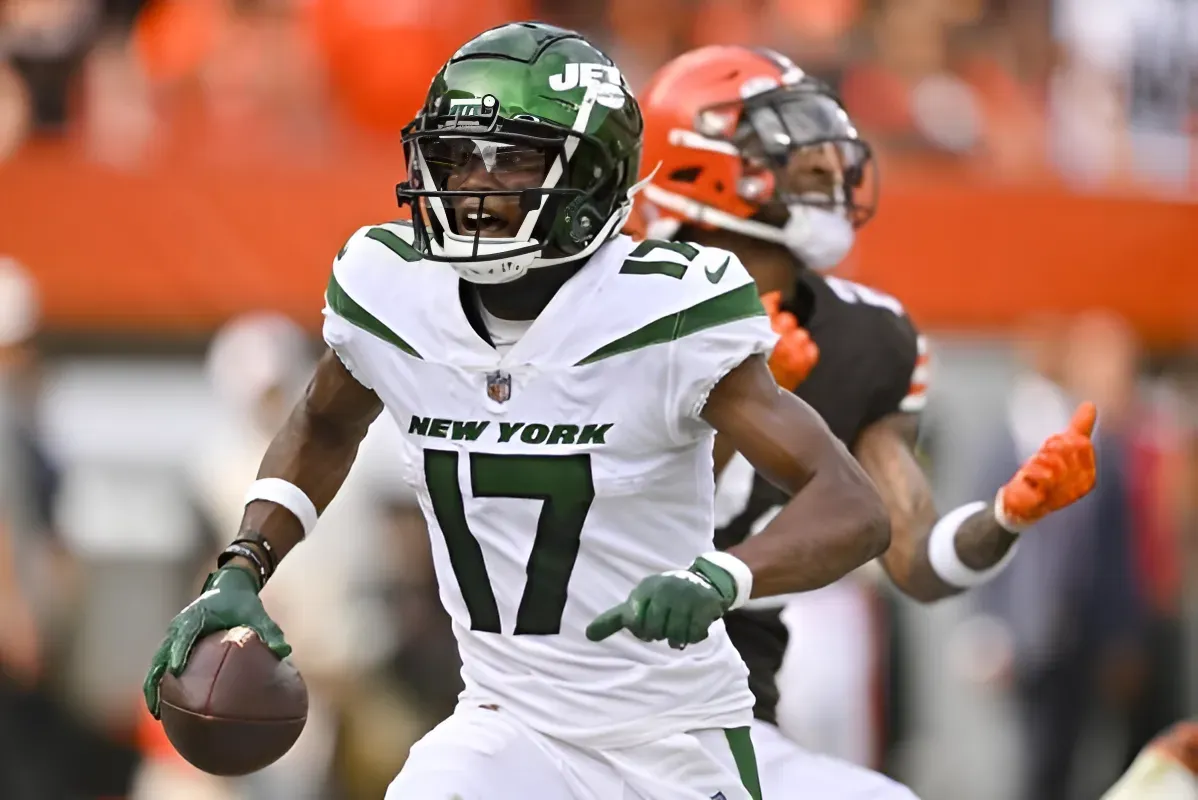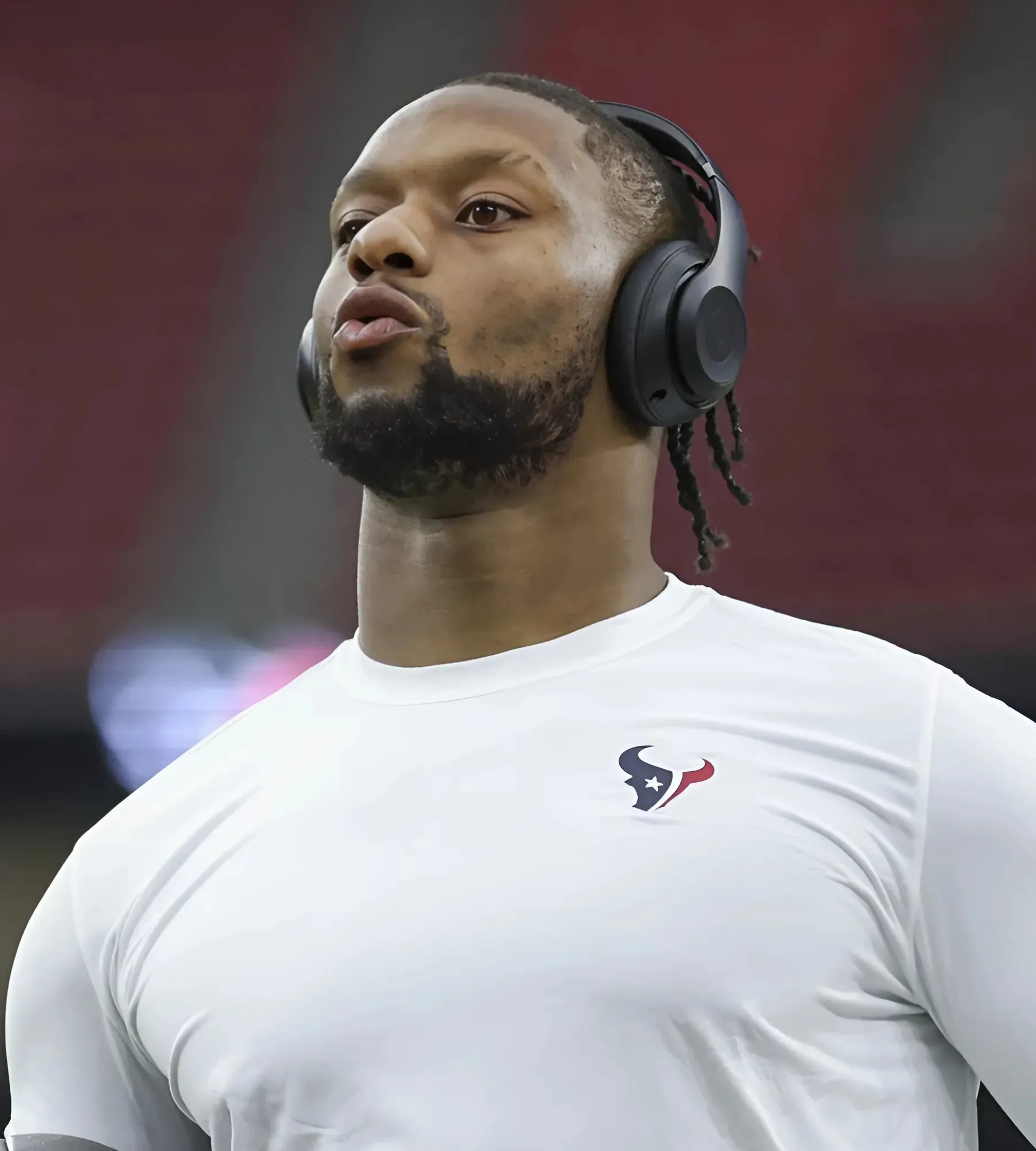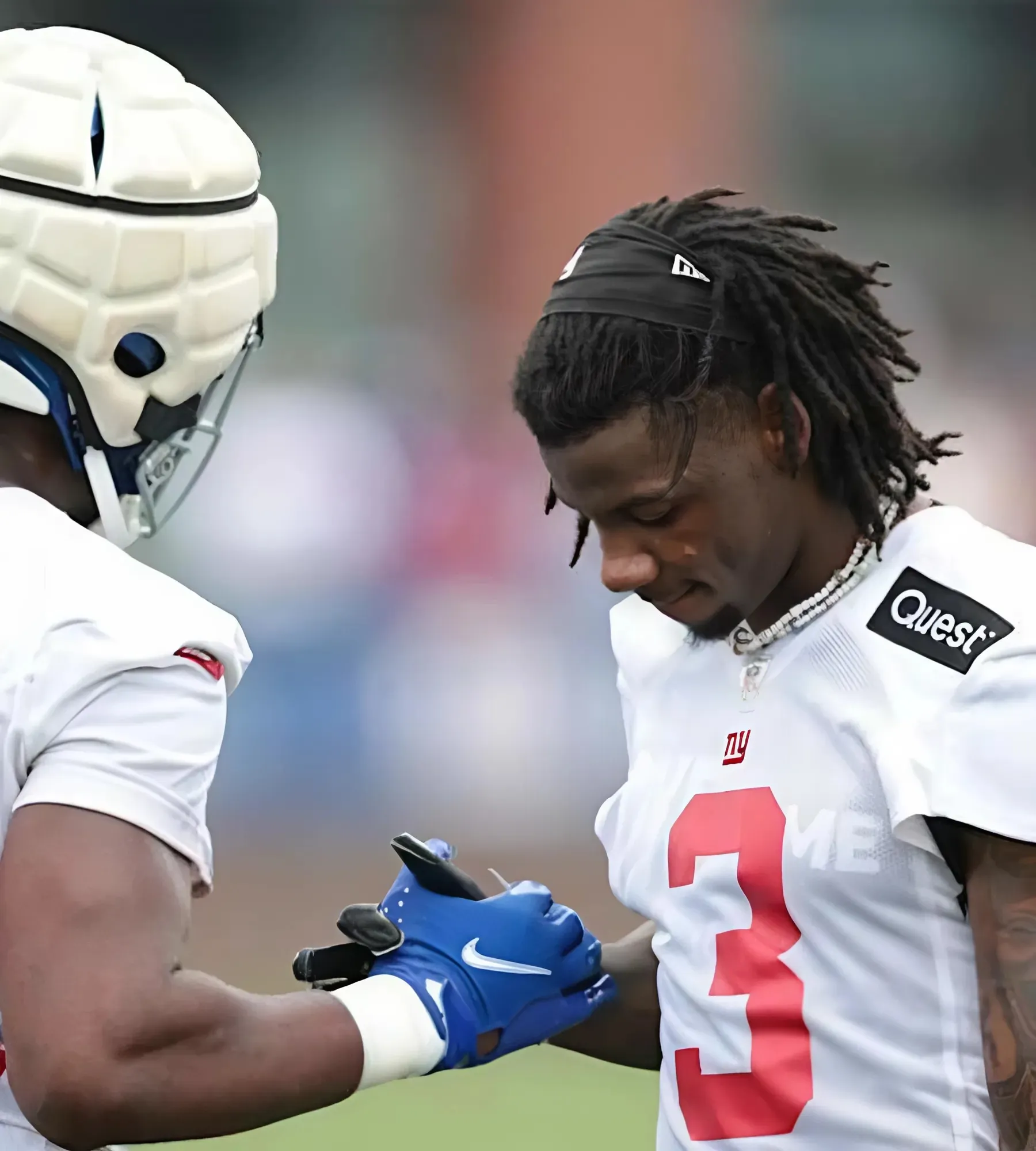CLEVELAND, Ohio — Browns defensive coordinator Jim Schwartz thinks his players will beat yours, and he doesn’t care who knows it. In fact, before most snaps played by Cleveland’s defense, Schwartz shouts it from his playbook.
In an era defined by funky zone coverages and simulated pressures, Schwartz keeps it simple. Leave my corners on an island and just one safety deep to protect them. Bet on my defensive line and my blitzers to hit the quarterback before his receivers win one-on-one battles, or bet on those receivers to lose. Essentially, dare the offense to throw a big punch, then throw your own while the offense is still winding up. If Schwartz’s players are as good as he thinks, their fist will land first.
During Sunday’s 21-15 loss to the stinky, no good, offensively challenged Giants, however, Schwartz’s unit ate too many early haymakers. New York scored three touchdowns over a 17-minute first-half span Sunday, which equaled their total through two weeks. The Giants gained 15 or more yards on three first-half plays, which nearly equaled their total from Week 1′s loss to the Vikings (four). And New York dominated the first two quarters so thoroughly that Cleveland couldn’t recover despite pitching a second-half shutout, begging a globe-sized question for a defense that calls itself best in the world.
How?
“They just executed well,” Browns edge rusher Myles Garrett said. “Getting us up the field, running those screens, quick swings. Just keeping us off balance and not allowing us up front to really dictate the pace of the game by continuing to get the ball out in a variety of ways quickly.”
- Browns’ loss to Giants hints at season-threatening flaws in Cleveland’s infrastructure — Jimmy Watkins
- Cleveland Browns vs. New York Giants picks: Who will win Week 3?
- Michigan quarterback mess highlights difference between good and sustainable football programs — Jimmy Watkins
Call it a Schwartzian answer from one of Schwartz’s star pupils. In Garrett’s defensive meetings, success is simple: Players either beat their man or they didn’t. And the defense either got a stop or allowed points as a result. Winning and losing is reduced to execution because Schwartz’s game plans, built around simplicity that begets speedy decisions, make it so.
Just ask him.
“... It’s a challenge every week, but we want to play fast, we want to play physical,” Schwartz said two weeks ago. “You want to, like, one of the things I try to do is eliminate as many ‘if, then’ statements for each player as we can, right?” Schwartz said two weeks ago. “Don’t give them too many, ‘if this happens, then do this’. Don’t (make them think), ‘well, if this happens and this happens and this happens. It’s all part and parcel to what we do.”
Coincidentally, Schwartz gave that answer days after another performance during which his unit got blitzed (no pun intended). The Cowboys hung 20 first-half points on Cleveland during a 33-17 Week 1 win. And when you account for last postseason’s 45-14 loss to the Texans, the world’s best, fastest and least prone to overthinking defense has allowed 20 or more first-half points in three of its last four games.
Small sample size? Sure. Correctable issues? Schwartz thinks so. When discussing the Dallas loss two weeks back, he described his defense as tired, lacking in execution, not communicating or playing fast enough. “We want to be known as a fast defense and you can’t slow players down with too much,” he said then, “but we have enough looks to be able to balance our stuff out and all those things.”
Two weeks later, I wonder how he’ll describe Sunday’s first half against New York. Of course, some plays — a missed tackle here, a Malik Nabers mossing there — can be critiqued on performance. But what about the simple screens and swing passes that kept Cleveland “off balance,” in Garrett’s words? What do we make of the process that led to Emerson (and not Denzel Ward) defending Nabers one-on-one? And what will Schwartz think of Garrett positing that New York was “using our aggressiveness against us?”
“It’s hard to say without seeing the film,” Garrett said when asked why Cleveland was off balance against New York. “Maybe just using our aggressiveness against us, and I think they had some really good play calls. I’m not saying that we didn’t, but it’s about us getting out the stack as D-linemen; making those plays when they cut inside and us flying downhill.
“It’s a combination of both. Especially when it’s quick, we have to jump on it and we got to make sure that we don’t miss tackles. We had a few too many missed tackles as well that could have set them back and helped us on those drives.”
- ‘Tape don’t lie, man:’ Browns struggle to defend Giants breakout rookie
- Where does Michigan’s Sherrone Moore rank on our list of the 40 Most Influential People in Cleveland Sports?
- Browns vs. Raiders preview: 3 things to know about Cleveland’s Week 4 opponent
Classic Schwartzian player quote: Always mentioning execution, even when we’re having a scheme conversation. Schwartz’s philosophy can blur the difference when he has the right players. And with capital-D dudes like Garrett (who left the stadium limping on Sunday), Jeremiah Owusu-Koramoah, Denzel Ward, Martin Emerson Jr. and Grant Delpit (among others), Cleveland’s coordinator has proven the prudence in letting footballers ball.
But compare Schwartz on Sunday to Giants defensive coordinator Shane Bowen, who had Browns quarterback Deshaun Watson tipping his cap after the loss. Watson said Bowen “switched up the game plan,” by deploying more pressure and man coverage than Cleveland expected. Those changes created mismatches and confusion for Cleveland’s protection, and Watson suffered a career-high eight sacks as a result.
Meanwhile, the Giants designed a gameplan to attack the philosophy Schwartz shouts at opponents. Giants receiver Wan’Dale Robinson said that Schwartz played more zone than New York expected, but Garrett’s “using our aggressiveness against us” theory is “pretty much what (our gameplan) was,” Robinson said. Quarterback Daniel Jones credited New York coach Brian Daboll for “mixing it up” with misdirection calls and quick throws that “kept (the Browns) on their heels.” And four months after Schwartz reflected on last year’s playoff loss by telling reporters that his “high-risk defense” chased too many plays and pressed too hard, the Browns once again found themselves imploding early against a play-caller that knew which stress points to poke.
I’m not suggesting that anybody has “solved” Cleveland’s defense or caught up to its coordinator. Both Schwartz and his players have long track records that suggest otherwise.
But I don’t see how Cleveland’s defense can play fast if it’s also playing off balance. I don’t believe “execution” can explain every defensive wart exposed during Sunday’s first half. And I’m not sure if Schwartz can solve every challenge with simple concepts that encourage speedy thinking.
Even if I know he doesn’t care what I think.
“You do what fits your players and what you think is best to win the game,” Schwartz said last week when asked about league trends bucking his single-high coverages. “There’s a lot of good single-high (coverage) teams. Seattle was one of the best defenses in the league for a long time. Might’ve run more single-high than me, but it fit them really well. Their guys knew it, and they played hard, and I think that’s probably the biggest thing.
“I’m not up on those conversations. I mean, there’s plenty of ways to combat two-high. There’s plenty of ways to combat one-high. Tampa was one of the best defenses in the league, played a lot of two-high. It’s just how you do it, what you do, and we like what we do. We think it fits our players and allows them to play fast, and that’s the things we’re more worried about than what league trends are and what anybody else would have to say about it.”




